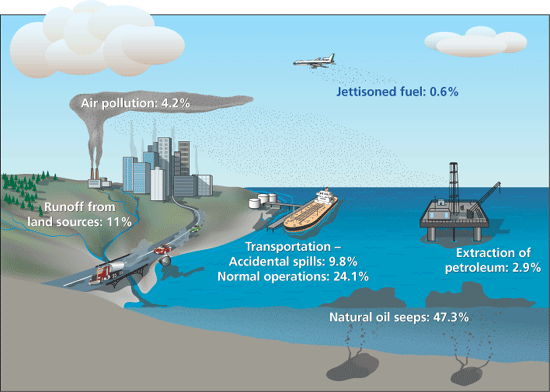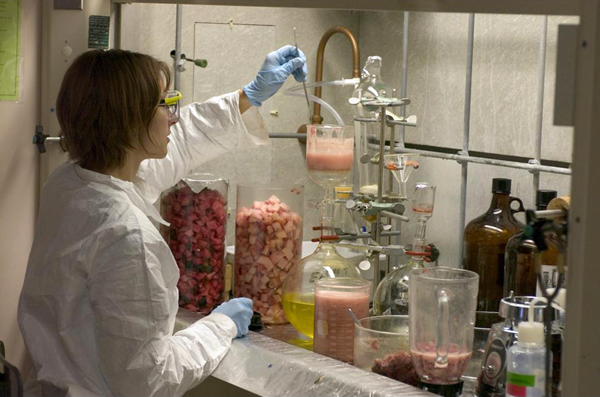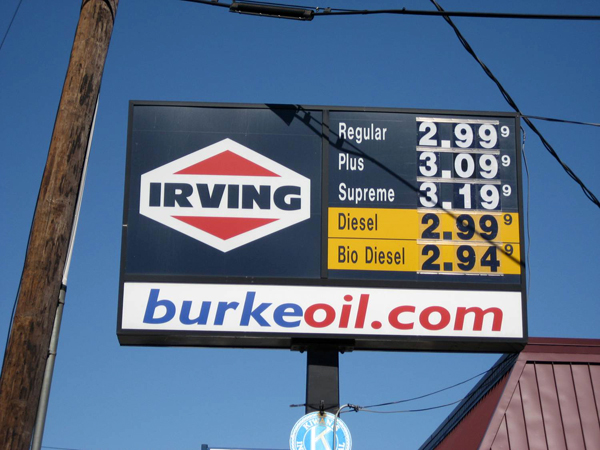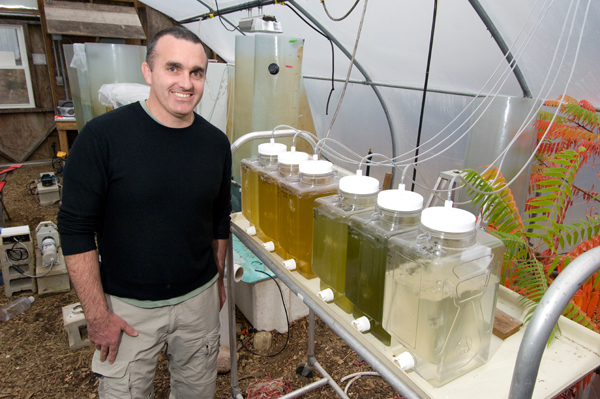Projects
Source, transport, and fate of petroleum hydrocarbons in the marine environment
We study both the short and long term fate of petroleum in the environment. Our approach is often to use novel and advanced techniques like molecular level radiocarbon analysis and comprehensive two dimensional gas chromatography.
See recent articles in Oceanus magazine:
Oil in Our Coastal Back Yard
Spills on WHOI's shores set the stage for advances in mitigating and remediating oil spills
Still Toxic After All These Years
Does oil spilled in 1969 still have impacts on wildlife? Ask a fiddler crab.
Natural halogenated compounds: biosynthesis, transport, and fate in aquatic food webs
Please refer to three articles in Oceanus that describe this work:
Mistaken Identity
Two bromine compounds found in whale blubber are natural products, not industrial pollutants.
Old Whale Oil Tells Tale of New Pollution
The sources and cycling of combustion-derived material in the environment
Our interests focus on constraining the sources and fates of combusution-derived materials such as soot, black carbon, and polycyclic aromatic hydrocarbons. We study both present-day emissions as well as historical changes over the past several centuries.
Investigating new materials (and avoiding the next DDT)
To avoid the next DDT, we have been studying the potential effects on the environment from alternative fuels, such as biodiesel, and carbon nanotubes. Ideally, they have no negative effects. If they do, we plan to communicate these results directly to industry so that environmental chemists can work proactively with industry.
Algal-based biofuels
The instability in crude oil prices and availability, projected decreases in oil supplies, and increasing concerns about climate change make biofuels an alluring source of alternative energy.
Studies indicate that a marine-based biofuel—microalgae—holds greater promise than terrestrial biomass for producing the next generation of biodiesel. Our efforts are being directed at idenfying the most robust speces capable of sustained growth and products of algal-fuel precursors.




